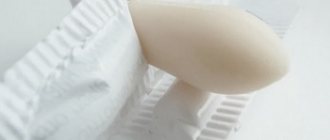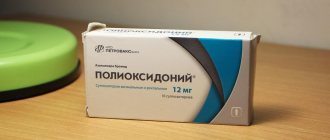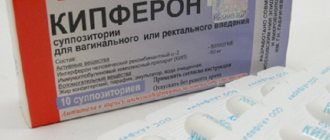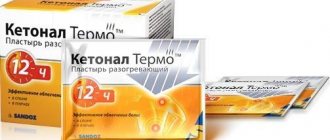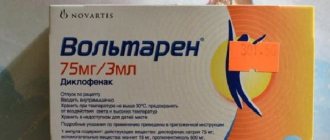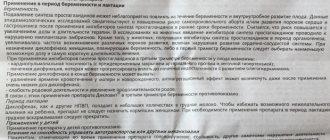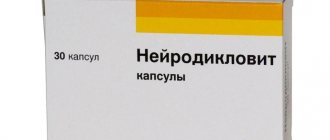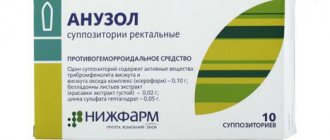Korilip suppositories are a combination drug with pronounced metabolic and restorative effects due to the unique composition of coenzymes and vitamins. The combination of active components leads to an improvement in metabolic processes in tissues under various physiological and pathological conditions. Available in dosage form for adults, there are also suppositories for children (Korilip-Neo), which are prescribed from the neonatal period to 12 months.
It is used for cellular hypoxia, metabolic acidosis and other metabolic changes, recommended for chronic intoxication and insufficiency of liver, kidney, and heart function.
Clinical and pharmacological group: a drug with a general strengthening effect.
Candles "Korilip-Neo" for children: instructions for use
To support the body of children who are often sick or have suffered a serious illness, medications that contain valuable nutrients are used. Such support is most important for children who are malnourished or stressed. They are prescribed means to strengthen the body, one of which can be called “Korilip-Neo”.
Peculiarities
The drug is presented in only one dosage form - rectal suppositories. They are characterized by their oblong shape and yellow color interspersed with dark yellow or orange. Such suppositories are placed in cell shells of 5 pieces and packed in ten suppositories in one box.
The medicine contains three substances, the first letters of whose names spell the word “Korilip”.
- Cocarboxylase. This component is presented in the form of hydrochloride at a dosage of 12.5 mg per suppository.
- Riboflavin, also called vitamin B2. Its amount in each suppository is 1 mg.
- Lipoic acid, also called thioctic acid or alpha lipoic acid. Its dosage per 1 suppository is 6 mg.
The only additional component of Korilipa-Neo is solid fat. The drug does not contain any other chemical compounds.
Candles
- November 19, 2019
- obstetrics and gynecology
- Svetlana Saksina
“Korilip” suppositories belong to the group of combined drugs.
The medication contains coenzymes and vitamins, which makes it indispensable during bacterial and viral infections, reduced immunity and some other conditions.
Below we describe why Korilip suppositories are prescribed, what contraindications exist for its use, and whether the drug can be replaced with an analogue.
Release form and composition
The composition of Korilip suppositories includes active substances such as riboflavin, cocarboxylase hydrochloride and alpha-lipoic acid. Suppositories contain solid fat or cocoa butter as auxiliary components.
"Korilip" is available in the form of suppositories for rectal use.
How each component “works”
Each of the active substances of suppositories has its own task:
- Riboflavin. The substance is also known as vitamin B2. With its participation, the body exchanges fats, carbohydrates and proteins. In addition, it helps maintain normal mucous membranes, helps maintain skin elasticity, activates metabolism in the cornea and lens of the eye, and is responsible for the biosynthesis of hemoglobin.
- Cocarboxylase. This is an enzyme that stimulates tissue metabolism processes. Also, without it, proper metabolism of carbohydrates is impossible.
- Lipoic acid. Takes part in the processes of carbohydrate and lipid metabolism, accelerates the process of eliminating toxins, increases the amount of energy in the body and increases its resistance to adverse factors.
Due to this effect, the instructions for use of Korilip suppositories contain several different indications.
Contraindications for use
Korilip suppositories are not prescribed if the patient has:
- hypersensitivity to the active ingredients of the drug;
- rectal bleeding;
- proctitis.
In this case, the age of the patient does not matter. Korilip suppositories are approved for children (the instructions for use confirm this), and for pregnant women, and for nursing mothers.
Directions for use and doses for adults
Since Korilip suppositories are rectal, they need to be inserted into the anus. Before doing this, be sure to empty your bowels.
As a rule, adults are prescribed 1-2 suppositories per day. The duration of treatment usually does not exceed 10 days, after which a break of 20 days is taken. You may need 3-4 such courses.
Use of the drug in children
According to the instructions, Korilip candles are also allowed for children. But for each age it is necessary to observe a certain dosage:
- newborns and children under 1 year - 0.5 suppositories per day;
- children 1-6 years old – 1 suppository per day;
- children aged 6 years and older – 1-2 suppositories per day.
In addition, there is a special “children’s” version of the drug called “Korilip-Neo”.
Its difference with the “adult” drug lies only in the reduced dosage of active substances in one suppository.
Korilip-Neo is usually prescribed to children under one year of age. The dosage indicated in the instructions is 1 suppository per day. In this case, the course of treatment remains the same as in the previous version.
In addition, it is worth clarifying that Korilip-Neo is not prescribed to adults.
Use of the drug by pregnant women
In addition to the indications indicated in the instructions for the Korilip suppositories, during pregnancy the product is also used in some other cases:
- to improve the condition during toxicosis;
- in case of dysfunction of the placenta;
- with intrauterine growth retardation;
- to support the body in case of acute vitamin deficiency;
- to prevent nervous breakdowns.
The ideal option would be prophylactic use of the drug in the first trimester of pregnancy. This will help protect the woman from possible bacterial and viral diseases, which are quite difficult to treat in this period due to the ban on the use of many medications.
The dosage and duration of therapy for pregnant women is no different from the standard: 1-2 suppositories per day for 10 days and a subsequent three-week break.
Side effects and overdose
Side effects from the use of Korilip suppositories are extremely rare. However, the manufacturer warns about the possible occurrence of unexpected reactions:
- itching;
- hives;
- bronchospasm;
- dyspepsia.
If at least one of them appears, you must stop using the drug and then consult your doctor.
As for an overdose, in the case of Korilip it is unlikely. There are no data on such cases.
Analogues of the drug
Based on the similarity of composition, there are no absolute analogues of Korilip candles (with the exception of Korilip-Neo). But there are many different means that can replace it in terms of therapeutic effect, in particular, increase immunity. They can be either imported or made in Russia.
The cost of drugs also differs. Let us clarify that the price of Korilip suppositories varies within 300 rubles per package.
It is also worth noting that many of the medications listed below are not in the form of suppositories, but capsules or solutions for injection.
Cheaper analogues of the drug produced in Russia:
- “Cocarboxylase” (from 98 rubles, solution for intramuscular or intravenous administration).
- “Lipoic acid” (44 rubles, tablets for internal use).
- "Riboflavin-Mononucleotide" (95 rubles, solution for subcutaneous administration).
More expensive analogues of Russian-made products:
- “Octolipen” (from 317 to 720 rubles, depending on the form of release: tablets, capsules or concentrated solution for infusion).
- “Thioctic acid” (552 rubles, tablets).
- "Tiolepta" (from 307 to 824 rubles, film-coated tablets).
Imported analogues in most cases have a higher cost. Of the popular products, only Tiogamma is cheaper than Korilip itself (210 rubles, 50 ml bottle). At the same time, the cost of a drug with the same name, but in the form of tablets, is in the range of 1600-1900 rubles.
More expensive imported substitutes:
- "Tioctacid" (1200-3200 rubles depending on the form of release: solution for intravenous administration or tablets).
- "Espa-Lipon" (from 714 rubles, concentrate for injection).
Reviews about the drug
Most reviews about Korilip candles are positive.
Those who have tested their effect on their children note:
- improved immunity and, as a result, less frequent illnesses;
- improved appetite;
- faster recovery from colds.
In addition, patients like the drug because it has a natural composition, reasonable cost, and a fairly wide spectrum of action. Some women talk about how they use these suppositories for other than their intended purpose. They apply the drug to wrinkles! It sounds a little unusual, but judging by the reviews, it really works.
The drug is also praised by pregnant women, for whom it helped cope with toxicosis, hypoxia and other problems.
Source: https://druggist.ru/478211a-svechi-korilip-instruktsiya-po-primeneniyu-pokazaniya-analogi-otzyivyi
Operating principle
The components of suppositories support the child’s body and also strengthen its protection against viruses and bacteria, therefore “Korilip-Neo” is classified as a medicine with a general strengthening effect. Suppositories have a positive effect on the course of metabolic processes and help in the treatment of various pathological conditions.
The active substances of the suppositories act together and mutually enhance their properties:
- cocarboxylase is important for tissue nutrition, the formation of amino acids, the regulation of carbohydrate metabolism and the synthesis of nucleic acids;
- thanks to the participation of riboflavin, important biochemical reactions take place, and hemoglobin is synthesized;
- Lipoic acid has hepatoprotective properties and affects the formation of energy in the child’s body.
Pharmacological action of Korilip
According to the instructions, Korilip is a drug that improves metabolic processes in the body. Its action is determined by the effects that its constituent components have.
Cocarboxylase (coenzyme) is involved in carbohydrate metabolism, indirectly affects the synthesis of nucleotides, proteins, lipids, and also activates tissue metabolism. Cocarboxylase is used to correct metabolic acidosis, cellular hypoxia and other metabolic disorders. This drug is used for disorders of the kidneys, liver, cardiovascular system, as well as for chronic intoxication.
Riboflavin (vitamin B2) is involved in the synthesis of hemoglobin, helps maintain normal visual function of the eyes, and maintains the condition of the mucous membranes and skin. Riboflavin takes part in the regulation of redox reactions of the body, and in the processes of protein, fat and carbohydrate metabolism.
Lipoic acid plays an important role in the processes of energy formation, regulates carbohydrate and lipid metabolism, and also has a hepatoprotective effect (protects liver cells from negative influences), improves the removal of toxins from the body.
All these components in combination have a synergistic (combined) effect, as a result of which tissue metabolism improves in various pathological and physiological conditions.
At what age is it prescribed?
"Korilip-Neo" is allowed to be used from birth, that is, this medicine is not contraindicated for newborns and infants.
Moreover, this drug is intended specifically for children under the age of one year, and other drugs are prescribed for patients older than 1 year.
Use during pregnancy and lactation
Since all components of Korilip cause the normalization of energy metabolism in cells and tissues (the so-called metabolic effect), the use of this drug during pregnancy allows one to minimize complications and pathological conditions in this situation. During pregnancy, Corilip can be used in the first trimester (when most drugs are contraindicated). This drug can be used in preparation for pregnancy. Metabolic therapy with Korilip during pregnancy is indicated for various pathologies (fetoplacental insufficiency, intrauterine growth retardation, etc.).
There is no data on the penetration of this drug into breast milk.
Indications
The purpose of using the drug can be both prevention and treatment of various pathologies that occur at an early age.
"Korilip-Neo" is used in children of the first year of life in the following cases:
- if the baby suffered tissue hypoxia during childbirth;
- if the baby has respiratory disorders due to which he does not receive oxygen for a long time;
- if you need to support the baby in mastering new functions, for example, when the baby learns to hold his head, sit or take his first steps;
- if the baby is not gaining weight well or is stunted;
- if you need to protect your little one from infectious diseases during an epidemic;
- when preparations for routine vaccination take place;
- if your baby has suffered a viral or bacterial infection and you need to help his body recover faster.
In addition, “Korilip-Neo” is included in a set of measures for a variety of somatic diseases, including bronchitis, dyskinesia of the gastrointestinal tract, allergic reactions, chronic inflammation of the urinary tract, heart defects and so on.
Indications for use
The drug is prescribed as primary or auxiliary therapy for certain pathological conditions in children (more often) and adults, as well as for their prevention.
Indications:
- tissue hypoxia of a chronic nature;
- viral and bacterial infections, including intestinal;
- somatic diseases in chronic form;
- chronic intoxication;
- decreased immunity;
- malnutrition;
- recovery period after serious illness;
- intense physical and mental stress;
- stressful situations;
- periods of intensive growth and development of new skills in children.
In pediatrics and adult practice, it is prescribed as a general restorative prophylactic during epidemics of infections.
Korilip-Neo suppositories are often used in complex therapy for premature babies and babies born on time, but with a complicated adaptation period.
Application
According to the instructions for use, the medicine is used only rectally. The suppository, freed from packaging, is inserted into the anus of babies up to one year old, 1 piece per day. Before using Korilip-Neo, the intestines must be emptied, so suppositories are used either immediately after a bowel movement or after an enema.
The drug is prescribed in courses of 10 days. It is usually recommended to take not one, but several such courses (most often 3-4), taking breaks of 20 days between them, so in the end, all treatment with such suppositories lasts 3-4 months.
Reviews
You can see quite a lot of good reviews about the use of the medicine in children. In them, parents call Korilip-Neo a good alternative to injections and confirm the absence of adverse reactions.
Mothers note that it is very easy to use suppositories for infants. The main advantage of the drug is its useful and safe composition.
What to replace it with?
A full-fledged analogue of “Korilip-Neo” is the drug “Korilip”, which is also produced in elongated yellow suppositories, sold by prescription in boxes of 10 pieces. The indications for the use of such suppositories are similar; they are used for malnutrition, ARVI, decreased immunity, jaundice, acetone and other problems.
The contraindications and possible negative effects of these drugs also coincide, because they have the same active ingredients. The only difference between “Korilip” and the medicine with the prefix “Neo” is a higher dose of active ingredients - each of them in one “Korilip” suppository is twice as much as in the drug “Korilip-Neo”. This allows the use of suppositories not only for children of the first year of life, but also for older patients.
At the same time, for infants, “Korilip” is divided into 2 parts and only half is inserted into the rectum, and for children over one year old, the drug is prescribed in 10-day courses of 1 suppository per day.
Other analogues include Derinat, Galavit, IRS-19, Imunofan and other medications in tablets, drops, suppositories and sprays used to stimulate the body's defenses.
You will learn how to properly insert rectal suppositories from the following video.
source
